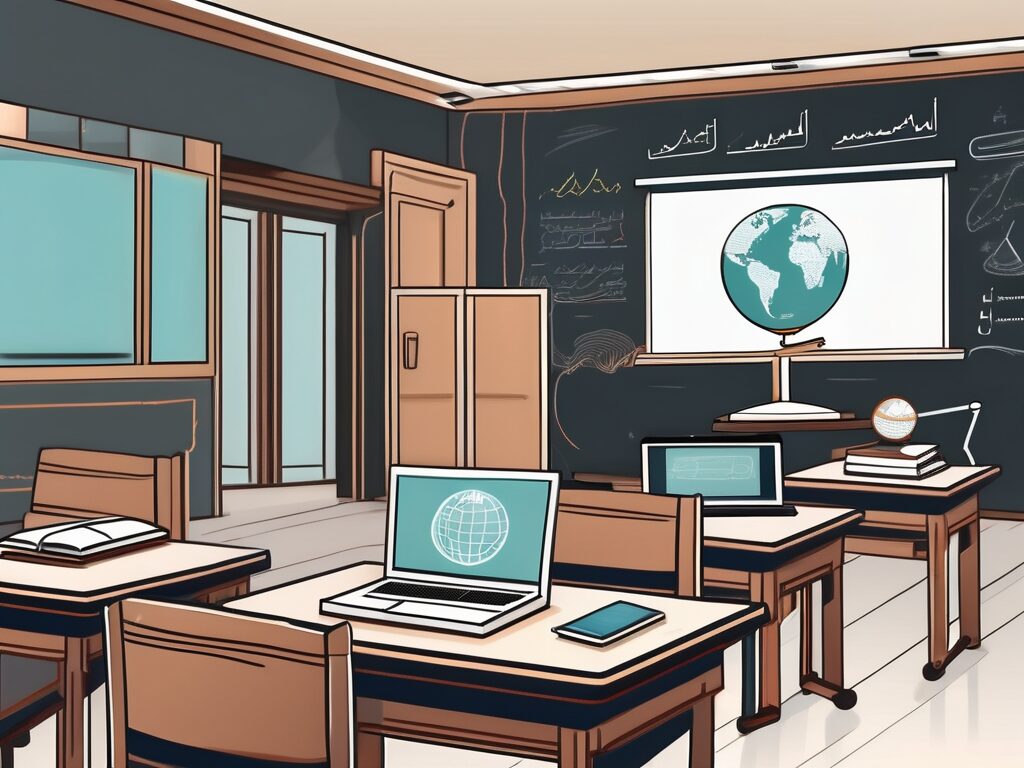Teaching is a noble profession, one that shapes the character, calibre, and future of an individual. In the United Arab Emirates (UAE), the education sector has seen a significant transformation over the years, with a focus on adopting innovative and effective teaching practices. In this blog, we delve into the heart of these practices, exploring their impact and how they contribute to the overall development of students.
The Evolution of Teaching Practices in the UAE
The UAE’s education sector has been on a steady path of evolution, with the government investing heavily in the development of schools and universities. This commitment to education has led to the adoption of innovative teaching practices aimed at enhancing the learning experience for students.
Traditionally, teaching in the UAE was largely based on rote learning, with students memorising information and regurgitating it during exams. However, this method has been gradually replaced with more interactive and engaging teaching practices. These new methods focus on developing critical thinking skills, encouraging creativity, and fostering a love for learning among students.
Adoption of Technology in Teaching
One of the most significant changes in teaching practices in the UAE has been the adoption of technology. Schools and universities have embraced digital learning platforms, interactive whiteboards, and other tech tools to make learning more engaging and effective.
For instance, many schools in the UAE now use virtual reality (VR) to teach students about history and geography. This immersive technology allows students to virtually visit historical sites or explore different parts of the world, making learning more exciting and memorable.
Focus on Student-Centred Learning
Another key shift in teaching practices in the UAE is the move towards student-centred learning. This approach places the student at the centre of the learning process, encouraging them to take an active role in their education.
Teachers act as facilitators, guiding students through the learning process and encouraging them to explore, question, and discover. This approach fosters a sense of ownership and responsibility among students, making them more invested in their learning.
Effective Teaching Practices in the UAE
Now that we’ve explored the evolution of teaching practices in the UAE, let’s delve into some of the most effective methods currently in use. These practices are not only transforming the way students learn but also shaping the future of education in the country.
Collaborative Learning
Collaborative learning is a teaching practice where students work together to solve problems or complete tasks. This method fosters teamwork and communication skills, essential competencies in the 21st-century workplace.
In the UAE, many schools use collaborative learning techniques such as group projects, peer tutoring, and cooperative learning groups. These activities encourage students to share ideas, learn from each other, and develop a sense of community.
Project-Based Learning
Project-based learning is another effective teaching practice widely used in the UAE. This method involves students working on a project over an extended period, allowing them to explore a topic in depth.
Projects can range from designing a sustainable city to creating a business plan for a start-up. This hands-on approach to learning not only enhances understanding but also allows students to apply what they’ve learned in a real-world context.
Flipped Classroom
The flipped classroom is a teaching model that reverses the traditional learning environment. Instead of lecturing in class and assigning homework, teachers provide instructional content—usually in the form of video lectures—for students to review at home. Class time is then used for interactive activities that reinforce learning.
This method allows students to learn at their own pace, with class time dedicated to addressing questions, discussing concepts, and applying knowledge. Many schools in the UAE have adopted the flipped classroom model, recognising its potential to enhance student engagement and understanding.
Conclusion
The UAE’s education sector has come a long way, with innovative and effective teaching practices playing a key role in this transformation. From adopting technology to fostering student-centred learning, these methods are shaping the future of education in the country.
As we move forward, it’s clear that these practices will continue to evolve, driven by the UAE’s commitment to providing quality education for all. And as they do, they’ll continue to inspire students, fostering a love for learning and equipping them with the skills they need to succeed in the 21st century.
Elevate Your Teaching Career with IPGCE
As the UAE continues to revolutionize its educational landscape, there’s never been a better time for educators to enhance their qualifications and embrace the global teaching community. IPGCE offers you the opportunity to join the UK’s #1 Teacher Training Course, designed to overcome the barriers of stringent qualifications, limited career progression, professional isolation, and the need for a deeper understanding of international curricula. With our International Postgraduate Certificate in Education (iPGCE), you’ll not only increase your chances of securing international teaching positions but also see substantial career growth, salary increases, and become part of an expansive professional network. Embrace the change and become a pivotal part of the evolving educational excellence in the UAE and beyond. Join the UK’s #1 Teacher Training Course today and take your teaching career to new heights.

